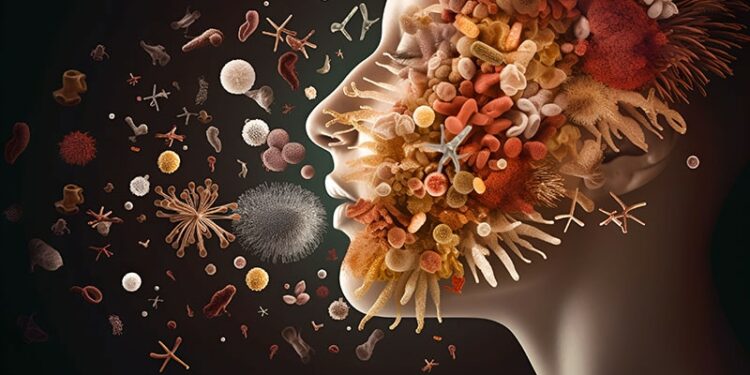TOPLINE:
Dysbiosis of the oral microbiome is associated with various upper gastrointestinal (UGI) disorders and precancerous lesions, with specific microbial signatures varying by disease and oral site, research shows.
METHODOLOGY:
- Emerging evidence suggests that the oral microbiota may contribute to the development of gastrointestinal malignancies, leading to efforts to identify biomarkers for early detection and progress of disease.
- In this population-based cross-sectional study, researchers studied the association between the microbiome of saliva, subgingival, and buccal mucosa and UGI disorders, particularly precancerous lesions.
- Participants included 388 adults who underwent upper endoscopy with biopsies for histopathologic analysis.
- UGI symptoms were evaluated using a validated tool, and 16S ribosomal RNA sequencing was used to characterize microbial diversity and composition of 380 saliva, 200 subgingival, and 267 buccal mucosa samples.
TAKEAWAY:
- Saliva dysbiosis was associated with several UGI disorders, including gastroesophageal reflux symptoms alone, symptomatic esophagitis, combined esophagitis and Barrett’s esophagus (BE), Helicobacter pylori–positive histology, chemical reactive gastritis, atrophic H pylori gastritis, and intestinal metaplasia.
- In contrast, dysbiosis in subgingival and buccal mucosa was more specifically associated with BE and atrophic H pylori gastritis.
- Among several identified genera, Prevotella and Fusobacterium in saliva were associated with gastric atrophy and intestinal metaplasia, and in subgingival samples, there was a notable link between Fretibacterium in BE and Fusobacterium in gastric atrophy and intestinal metaplasia.
IN PRACTICE:
“Our study for the first time suggests that microbiota in the subgingival and buccal regions may serve as more specific biomarkers for detecting precancerous lesions in asymptomatic patients, particularly for Barrett’s esophagus,” the authors wrote. “Saliva might be more appropriate for monitoring any UGI disorders at the population level.”
SOURCE:
The study, with first author Fatemeh Sadeghi, PhD, with Karolinska Institutet, Stockholm, Sweden, was published online in the American Journal of Gastroenterology.
LIMITATIONS:
The study used bacterial DNA, which cannot distinguish metabolically active bacteria. Data on diet and probiotic use were not collected. The cross-sectional design precludes conclusions about causality.
DISCLOSURES:
The authors declared no conflicts of interest. The study was funded by the Swedish Cancer Society and the Swedish Research Council.
Source link : https://www.medscape.com/viewarticle/oral-microbiome-dysbiosis-biomarker-upper-gi-disorders-2025a10001cj?src=rss
Author :
Publish date : 2025-01-21 08:27:42
Copyright for syndicated content belongs to the linked Source.














